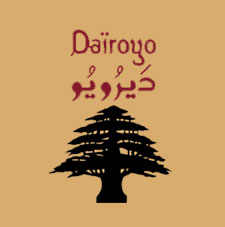Dairoyo is the only authentic traditional Lebanese outfit. Made by Lebanese Antonine Nuns in a Monastery.
Remaking the old models of Shirwal (in major parts), and other Lebanese outfits as shoes, gilet, jacket and scarfs. Our only atelier is in Dekwaneh.
Dairoyo
Between the mountains of Lebanon and the mountains of Antakya, in the era prior to the Persian Invasion to the East, the sirwal was rooted in a civilization of noble origin; at that time, it became the traditional clothing of the Syriacs who lived in that area.
The sirwal, a unique and comforting clothing design, was widely known among the first Maronite monks and villagers in 450 A.D. After invading the East, the Persians adopted this type of clothing-called sirwal in Syriac and called it šalvār. The sirwal, then, became the Ottoman Empire’s formal dress code 600 years after its appearance.
The sirwal is made of a crafty cultural design along with an inveterate elegant style. This comforting and long-lasting design of this piece of clothing made for ten years, with big pockets intended for daily use, is so graceful and unique, that it absolutely reflects its pure oriental identity. Its sewing is not simple, but rather requires meters of fabric and high skills to get it fabricated; not to mention that it was indispensible and not easily accessible. It is said that a man can wear one for a long time, or even throughout his life. Being loose, it provides easy movement for workers and maintains moderate temperature of the body in summer and winter. Moreover, the sirwal, in all its exquisite versions, was worn by the elite.
Many are the reasons that made us revive the sirwal nowadays; it is the value we render to the history of this scarce piece as well as the appreciation we owe to our ancestors, those who designed the sirwal and left their marks on it.
The “Dairoyo” sirwal is crafted with elegancy and with high skills and quality by the nuns of Qanoubine valley; those nuns who use their magic fingers in order to make this masterpiece valuable spiritually and culturally.
The release of the first “Dairoyo” design will carry four different identities:
1) The sirwal of Yousef Beik Karam from Zgharta
2) The sirwal of Tanious Chahine from Keserwan
3) The sirwal of Abou Samra Ghanem from Jezzine




